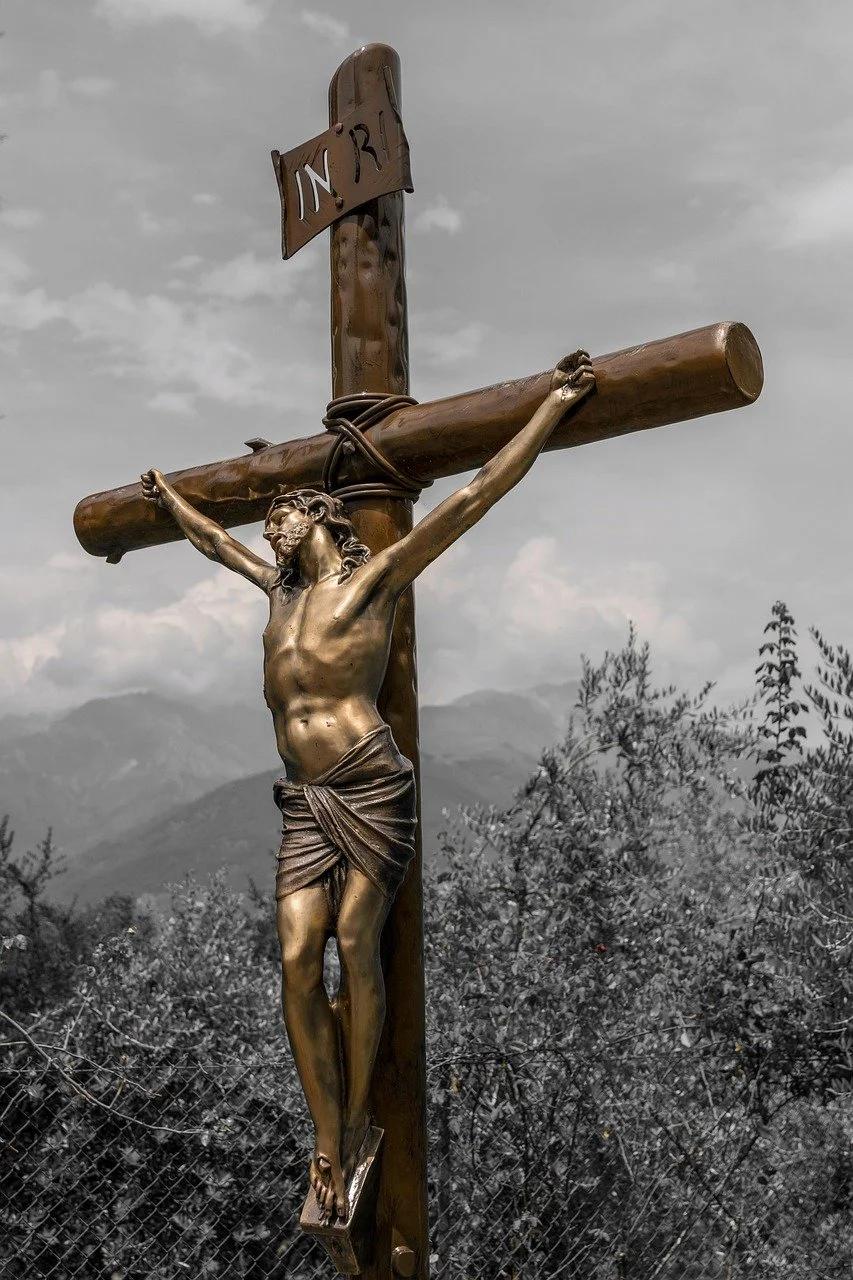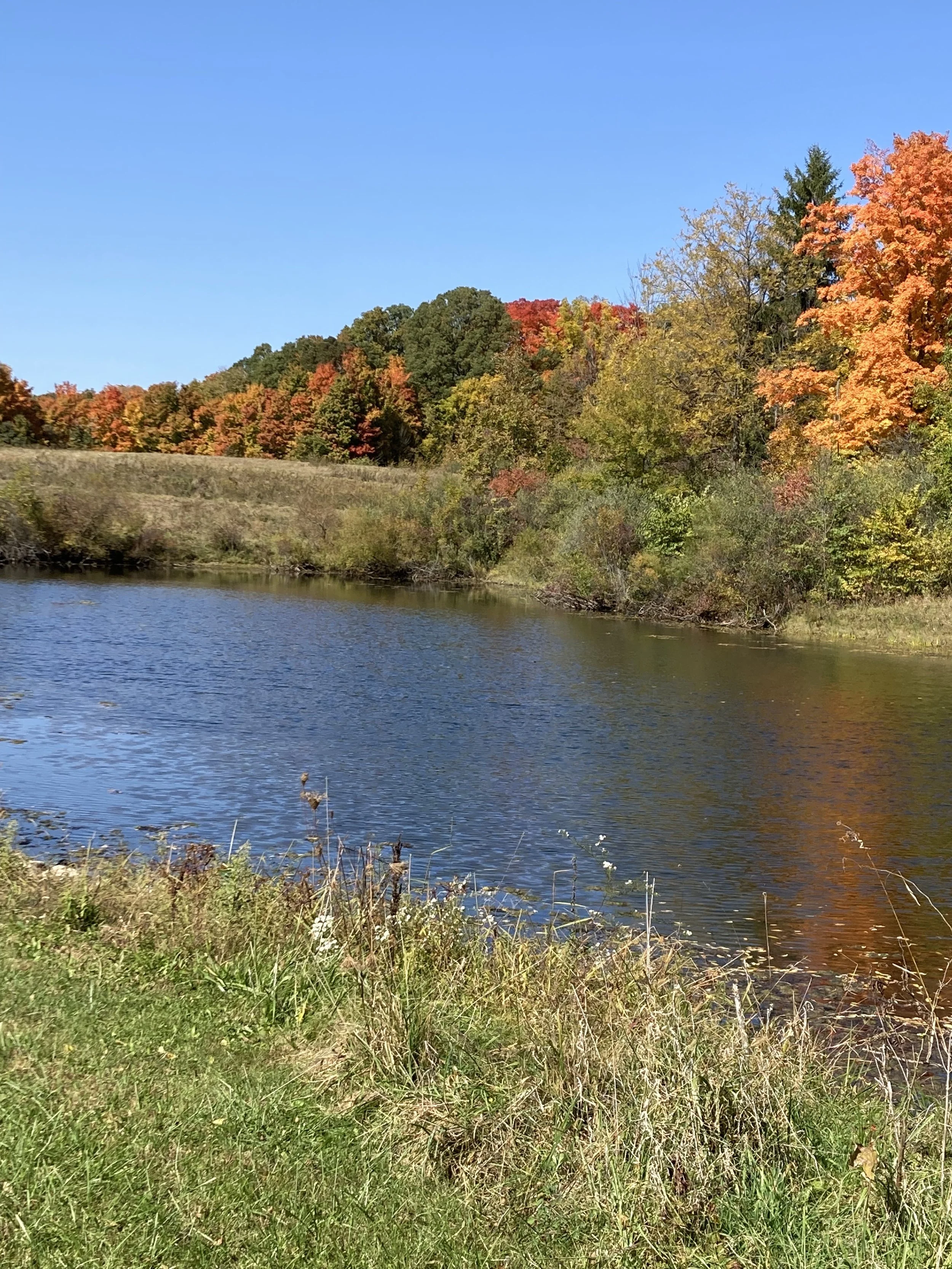Embracing Sadness and Finding Joy: A Study of our Life in Jesus during the Holidays - Part 2: Remembering God's Faithfulness
If you are following along this December, I am doing a short series on the emotion of sadness during the holidays. Holidays for many are not the bright, merry celebrations we tend to hear about. Instead, they are filled with pain, hurt, anger, sadness and despair. The reasons are many, from the death of a spouse or child, to divorce, to the loss of a job or health, to the state of our country. Many people are struggling with feeling depressed and overwhelmed.
Image by Armando Orozco from Pixabay
The reason I decided to broach this topic was in part to share what I have learned about carrying sadness on a regular basis, but still being able to function and live a full and productive life. Sadness isn’t something that we necessarily need to be free of, but rather something we need to embrace and learn how to accept and manage.
Last week we looked at what embracing sadness looks like and explored a few thoughts on how we can manage our own sadness, or how we can help others who are feeling more down than usual at this time of year. Tips included: having a grieving blanket, physical activity, artistic pursuits, and allowing others to help carry the burden. Another suggestion was to remember the faithfulness of God, and that is what we are going to look at this week.
The Old and New Testaments of the Bible are full of examples of God’s faithfulness. If we are in a particular dark state of mind we might read some of the Biblical accounts and only see God’s wrath, judgment and impatience, but as with all things if we look only for the darkness, we will only encounter darkness. True freedom lies in following and embracing the light of Christ.
Image by Daniel Reche from Pixabay
“1 In the beginning was the Word, and the Word was with God, and the Word was God.
2 He was in the beginning with God.
3 All things were made through him, and without him was not any thing made that was made.
4 In him was life, and the life was the light of men.
5 The light shines in the darkness, and the darkness has not overcome it.
6 There was a man sent from God, whose name was John.
7 He came as a witness, to bear witness about the light, that all might believe through him.
8 He was not the light, but came to bear witness about the light.
9 The true light, which gives light to everyone, was coming into the world.
10 He was in the world, and the world was made through him, yet the world did not know him.
11 He came to his own, and his own people did not receive him.
12 But to all who did receive him, who believed in his name, he gave the right to become children of God,
13 who were born, not of blood nor of the will of the flesh nor of the will of man, but of God.
14 And the Word became flesh and dwelt among us, and we have seen his glory, glory as of the only Son from the Father, full of grace and truth.
15 (John bore witness about him, and cried out, “This was he of whom I said, ‘He who comes after me ranks before me, because he was before me.’”)
16 For from his fullness we have all received, grace upon grace.
17 For the law was given through Moses; grace and truth came through Jesus Christ.
18 No one has ever seen God; God the only Son, who is at the Father’s side, he has made him known.”
God provides everything that we need to live life in this dark world, but the most important thing He provided was the Light, the life of His Son Jesus Christ. Try to imagine living in a world with no light. How would you be able to live life? There is the rather comedic aspect of running into walls, crashing into cars, and stepping on Legos in the living room, but it goes much deeper than that. Light is essential for plants to grow, which in turn produce oxygen, which gives us the ability to breath. Light is essential for our mental health. Take it from a sufferer of Seasonal Affective Disorder, sunlight is absolutely necessary for me to feel human. Light is also an important element in the deterrence of crime, otherwise, why would so many business owners leave lights on around their property?
Probably the most important aspect to light is that it lets us see. There is the physical aspect of sight which keeps us from running into things and helps us to recognize things and people. It also allows us to learn and study. Similarly, spiritual sight, given to us through the Holy Spirit, allows us to know God and His Word better. Abiding in the light enables to turn from the darkness and recognize God’s constant faithfulness.
““The Rock! His work is perfect, For all His ways are just; A God of faithfulness and without injustice, Righteous and upright is He.”
“Your lovingkindness, O Lord, extends to the heavens, Your faithfulness reaches to the skies.”
“He will cover you with His pinions, And under His wings you may seek refuge; His faithfulness is a shield and bulwark.”
I find this last verse interesting. “His faithfulness is a shield and bulwark.” We all know what a shield is, but what is a bulwark? Websters online dictionary defines bulwark as: a solid wall-like structure raised for defense; a seawall; a strong support or protection. If God’s faithfulness is a shield and bulwark, then that means His faithfulness is supporting and protecting us. Might it also mean, that when we choose to remember His faithfulness, it helps protect our minds from spending too much time in the darkness? Perhaps recalling God’s faithfulness is the best way to protect ourselves from the unbridled pain and despair we can feel when we are grieving.
In other versions of the Bible instead of the word, bulwark, or rampart the word is buckler. A buckler is a small shield and to my understanding it was a shield that was used during hand to hand combat. It was a shield that was held close to the body, and could also be maneuvered to block the enemy’s strikes. Whether you like the idea of a strong wall of defense or a small shield used in daily battle with the enemy, the reality is both are true. God is our defense, and His faithfulness allows us to extinguish the flaming arrows of despair, bitterness and hatred that Satan sends our way.
As I said in my first post, sadness is an emotion God gave us and by embracing it we allow ourselves to process those strong feelings in a healthy way, but if we allow ourselves to only see the sadness, and not remember the joy, or the laughter, we risk becoming shrouded in a darkness that might lead to a place of no return.
So, how do we remember God’s faithfulness when we are feeling overwhelmed by the sad? Let’s look at a few ideas.
1 - Pray. Ask God to help you to remember His faithfulness. Perhaps you prayed for something specific and that prayer was answered. Maybe you needed direction regarding a decision and He gave it to you. Remember God is not just faithful in the big things, He’s also faithful in the tiny details. Ask Him to help you remember those times and write those things down.
I did this recently, and God brought to my mind His faithfulness to me as a child. Growing up in a Bible believing church, I was fortunate to be surrounded by Biblical teaching, but hearing God’s word, does not necessarily mean we will follow Him. When I was very young, perhaps in kindergarten or 1st grade I had a Sunday School teacher named Miss Draper. An older, single woman, she was all vim and vinegar, but she genuinely cared about her students. I remember she took a trip to Europe. When she came back she had gifts for each of the children in her class. When I opened mine it was a little chalet of sorts. The roof opened and from within came the most beautiful music. Her gesture of kindness set me on a road of wanting to know Jesus. Oh what the love of a person living in obedience to Christ can do to change the world.
Image by Steve Haselden from Pixabay
2 - Read Scripture. I know these suggestions are not anything new, but how much more we need to be seeking our precious Lord, when we are in the throes of sadness and heartbreak. Scripture is full of examples of God’s faithfulness. Think of His provision for Adam and Eve’s nakedness after the fall (Genesis 3:21); or what about His faithfulness to Noah and His family during a catastrophic, world wide flood (Genesis 7:23); and don’t forget the restoration He gave to Job after allowing Satan to take everything away (Job 42:10-17); and one of my favorite accounts of His lovingkindness was to Ruth, a woman not even a Jew, given a place in the lineage of Jesus our King of Kings (Ruth 4). Start to finish, the Bible is a ribbon of God’s faithfulness, provision, love and intervention on the behalf of humanity, the greatest of these being Christ’s entry into our world as a baby.
mage by Ingela Skullman from Pixabay
3 - Look for God’s faithfulness and provision in the day to day. All may seem bleak until we start exercising the eyes of our hearts. Our physical eyes might only see the darkness; the pain, the despair, the unknown, but our spiritual eyes can see things beyond this physical world.
“15 For this reason I too, having heard of the faith in the Lord Jesus which exists among you and your love for all the saints,
16 do not cease giving thanks for you, while making mention of you in my prayers;
17 that the God of our Lord Jesus Christ, the Father of glory, may give to you a spirit of wisdom and of revelation in the knowledge of Him.
18 I pray that the eyes of your heart may be enlightened, so that you will know what is the hope of His calling, what are the riches of the glory of His inheritance in the saints,
19 and what is the surpassing greatness of His power toward us who believe. These are in accordance with the working of the strength of His might
20 which He brought about in Christ, when He raised Him from the dead and seated Him at His right hand in the heavenly places,
21 far above all rule and authority and power and dominion, and every name that is named, not only in this age but also in the one to come.
22 And He put all things in subjection under His feet, and gave Him as head over all things to the church,
23 which is His body, the fullness of Him who fills all in all.”
Paul’s prayer pertains to us when we are grieving. He prays that we would see with the eyes of our hearts so that: we would know the hope of His calling, the riches of the glory of His inheritance in the saints, and what is the surpassing greatness of His power toward us who believe. Look and see.
4 - Treasure thanksgiving. Having just celebrated Thanksgiving a few weeks ago here in the U.S. it is good to take this idea into the Christmas holidays, especially when we are sad. Giving thanks is not only a mood lifter, but it forces us to refocus our mind from the darkness to the light. Start small if that is all you can manage. Thank God for a warm bed, a hot shower, food, clean water, and a place to live. Even if all of these were striped away from us, we could still be thankful for Him; for His presence; for His character; for the fact that He does not change. Is it always easy to give thanks? No. But it is desired by our Creator.
“in everything give thanks; for this is God’s will for you in Christ Jesus.”
I hope this week you will find many moments to remember God’s faithfulness.







































































































